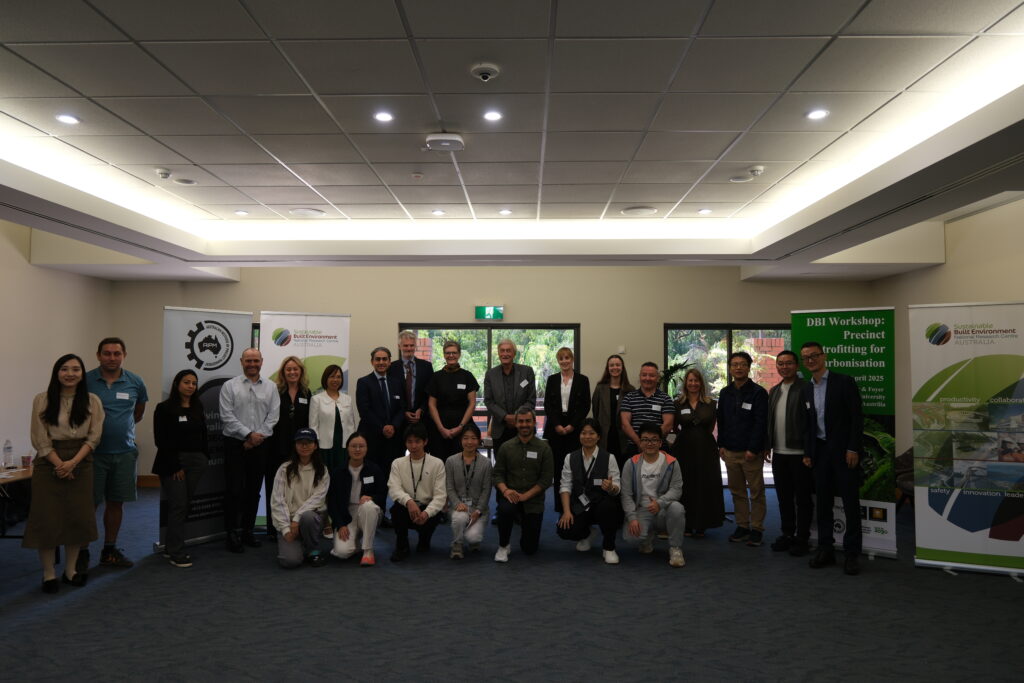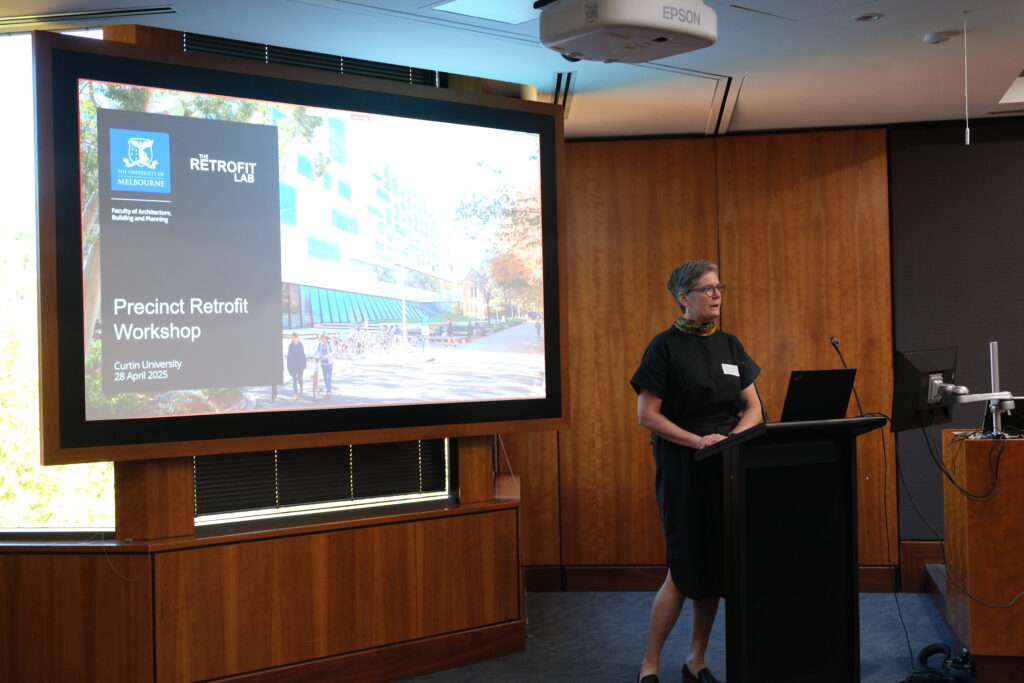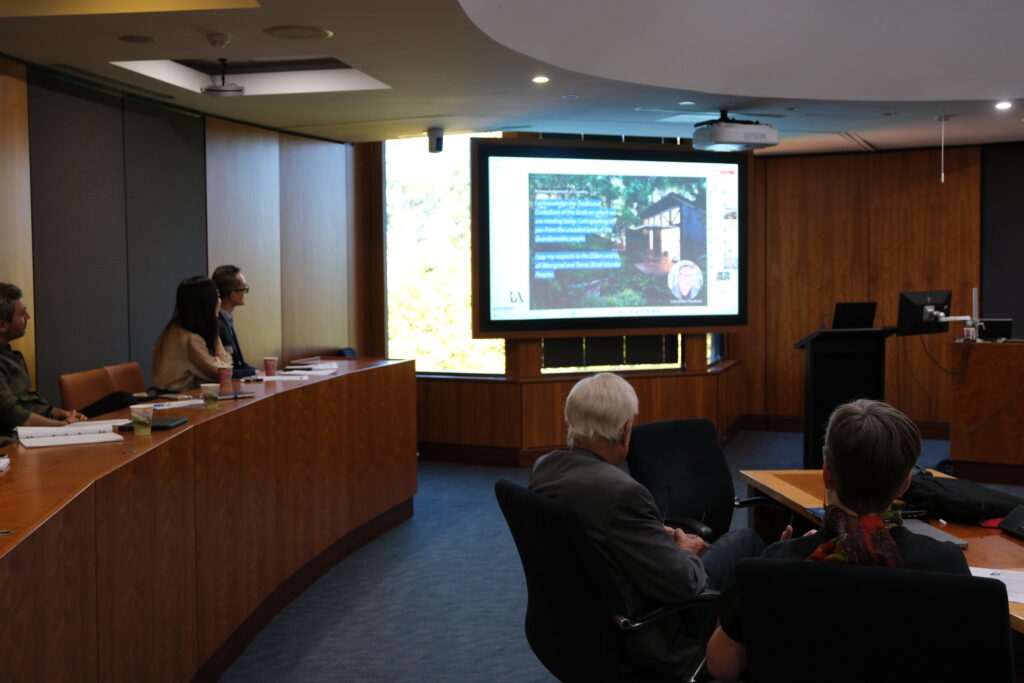
Presentations

Advancing Net-Zero Precincts: Jayne Bryant’s Vision for Sustainable Urban Futures
Jayne Bryant, Associate Professor at Curtin University’s School of Design and Built Environment and Deputy Director of the Curtin University Sustainability Policy Institute (CUSP), welcomed attendees to a workshop on decarbonizing the built environment. A Perth native, her concern for Western Australia’s degraded landscapes drove her to study sustainability in Sweden and advocate for sustainable urban development. She acknowledged the Whadjuk people’s care for country and emphasized educating future leaders in architecture, urban planning, and climate action to meet net-zero goals. The workshop aimed to accelerate precinct-level decarbonization through innovative solutions like net-zero precincts and modular construction, aligning with Australia’s Paris Agreement targets. Bryant thanked organizers, sponsors, and partners, including the DBI Network and Australian Institute of Project Management, and introduced an agenda featuring leading researchers. She highlighted CUSP’s two-decade legacy in sustainability research and noted co-founder Peter Newman’s upcoming talk.
Building Connections for Decarbonization: Behzad Rismanchi on the DBI Network
Behzad Rismanchi, Deputy Director of the Decarbonizing the Built Industry (DBI) Network and a University of Melbourne representative, introduced the DBI’s mission at a Curtin University workshop. Launched in November 2023 as a government-funded initiative, the DBI fosters collaboration among industry, government, and academia to address sustainability challenges in the built environment. Rismanchi emphasized face-to-face engagement through monthly workshops, demonstration projects, and a roadmap for decarbonization. The network showcases innovative technologies, including timber industry projects and international collaborations, such as with Vietnam. DBI’s first conference in 2023 drew attendees from 21 countries, with the next planned for Brisbane in 2026. Membership is free, and new partners, including Curtin University, are welcomed. Rismanchi highlighted the DBI Visiting Fellow Scheme for global knowledge exchange and stressed creating ongoing connections to tackle decarbonization challenges effectively.
Retrofitting Precincts for Sustainable Cities: Sarah Bell’s Vision
Sarah Bell, Director of the Retrofit Lab at the University of Melbourne, spoke at a Curtin University workshop about precinct retrofitting. A Western Australian native with a PhD from Murdoch University, she emphasized retrofitting existing urban assets to meet decarbonization, biodiversity, and resource conservation goals. The Retrofit Lab, collaborating across disciplines and universities like RMIT and UTS, aims to make Australian cities healthy and resilient. Bell highlighted the challenge of retrofitting existing buildings, infrastructure, and landscapes to avoid demolishing embodied carbon in structures. Projects include decision-support tools for building lifecycles, public housing retrofits, and green infrastructure engagement. Precincts, varying from campuses to urban renewal zones, are ideal for integrating solutions, sharing resources, and aligning policies. Bell invited collaboration through the Lab’s monthly forums and urged exploring research gaps to assess precinct retrofitting’s viability for sustainable urban futures.
Net Zero Precincts: Peter Newman’s Call for Action
Reimagining Precincts: Luke Rowlinson on Ethical and Regenerative Urban Design
Low-Carbon Modular Construction: Wei Pan’s Insights on High-Rise Decarbonization
Electrification and Decarbonization: Tatjana Hinson on Post-COVID Workspaces
Motivating Decarbonization: Peta Ashworth on Social Drivers for Precinct Retrofits
Motivating Decarbonization: Peta Ashworth on Social Drivers for Precinct Retrofits
The roundtable session brought together diverse stakeholders to examine critical challenges and opportunities in advancing net-zero urban precincts. Key themes included the importance of shared infrastructure—such as microgrids, shared thermal systems, and water reuse—and the need for robust governance models to support collaboration among multiple property owners. Participants stressed that technical solutions alone are insufficient; effective communication strategies and stakeholder engagement are vital to build trust and drive adoption. The discussion highlighted the importance of aligning economic, regulatory, and social dimensions, with greenwashing legislation, planning boundaries, and access to finance identified as ongoing barriers. Emphasis was placed on enabling demonstration projects and leveraging community-led initiatives to show tangible, cost-effective outcomes. The roundtable underscored the need for integrated governance, cross-sector collaboration, and adaptable policies to accelerate the transition toward resilient and regenerative precincts.

The roundtable session brought together diverse stakeholders to examine critical challenges and opportunities in advancing net-zero urban precincts. Key themes included the importance of shared infrastructure—such as microgrids, shared thermal systems, and water reuse—and the need for robust governance models to support collaboration among multiple property owners. Participants stressed that technical solutions alone are insufficient; effective communication strategies and stakeholder engagement are vital to build trust and drive adoption. The discussion highlighted the importance of aligning economic, regulatory, and social dimensions, with greenwashing legislation, planning boundaries, and access to finance identified as ongoing barriers. Emphasis was placed on enabling demonstration projects and leveraging community-led initiatives to show tangible, cost-effective outcomes. The roundtable underscored the need for integrated governance, cross-sector collaboration, and adaptable policies to accelerate the transition toward resilient and regenerative precincts.

